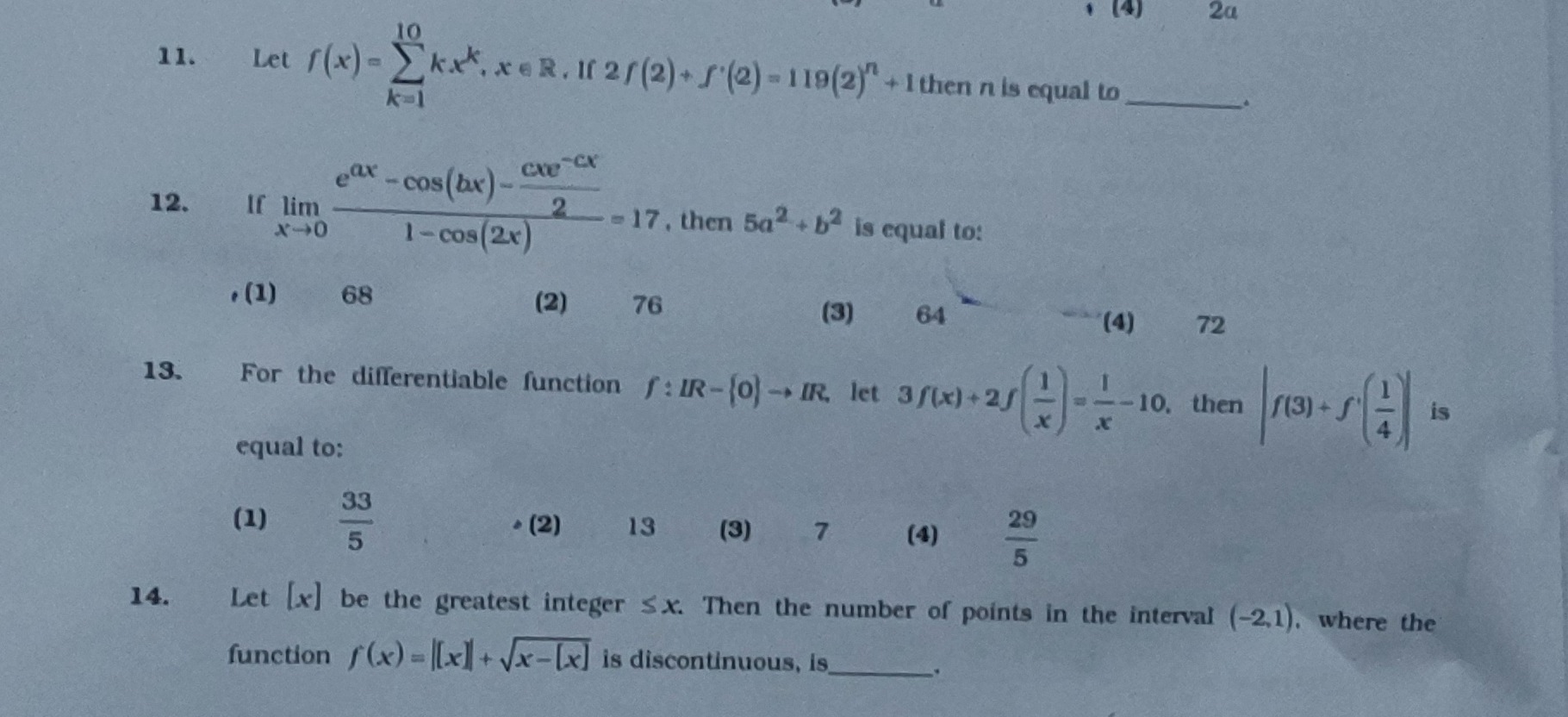Question
Question: Let \(f(x) = \sum_{k=1}^{10} kx^k, x \in R\). If \(2f(2)+f'(2)=119(2)^n+1\) then n is equal to _____...
Let f(x)=∑k=110kxk,x∈R. If 2f(2)+f′(2)=119(2)n+1 then n is equal to ______

Answer
10
Explanation
Solution
Let G(x)=∑k=010xk=x−1x11−1. Then f(x)=xG′(x). G′(x)=(x−1)211x10(x−1)−(x11−1)=(x−1)210x11−11x10+1. At x=2, G′(2)=(2−1)210(2)11−11(2)10+1=20(2)10−11(2)10+1=9(2)10+1. f(2)=2G′(2)=2(9(2)10+1)=9(2)11+2. f′(x)=G′(x)+xG′′(x). G′′(x)=dxd((x−1)210x11−11x10+1). At x=2, G′′(2)=(1)2(110⋅210−110⋅29)(1)−2(10⋅211−11⋅210+1)=110⋅29−2(9⋅210+1)=55⋅210−18⋅210−2=37⋅210−2. f′(2)=G′(2)+2G′′(2)=(9⋅210+1)+2(37⋅210−2)=9⋅210+1+74⋅210−4=83⋅210−3. 2f(2)+f′(2)=2(9⋅211+2)+(83⋅210−3)=9⋅212+4+83⋅210−3=36⋅210+83⋅210+1=119⋅210+1. Comparing with 119(2)n+1, we get n=10.
